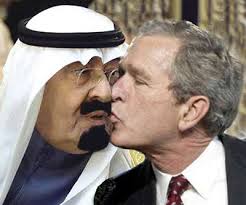 The attacks in Paris are a reminder that, 82 years after Texas aligned America with the Saudis’ Arabia, trading technology for oil, things are getting no better.
The attacks in Paris are a reminder that, 82 years after Texas aligned America with the Saudis’ Arabia, trading technology for oil, things are getting no better.
It’s a chain of mutual dependence. They have oil. We need oil. They sell oil to buy guns. We make guns to buy oil.
It no longer has to be this way.
In just the last five years, the cost of renewables has become cost-competitive with that of grid energy. Warren Buffett buys solar power plants to assure Berkshire-Hathaway with regular electricity supplies.
At peak times Texas gets 30% of its electricity from wind. Once, due to the peculiarities of its regulatory system, wind suppliers were actually paying customers to take that electricity, it was so plentiful.
 Even the most oil-addicted analysts say that, with subsidies, solar and wind energy are now competitive with fossil fuels. They complain about batteries, about intermittency, but these are the critics, those fighting for coal and oil and natural gas as fuel for our cars and our homes and our factories. They are saying that, with the current 30% tax credit, solar and wind are competitive.
Even the most oil-addicted analysts say that, with subsidies, solar and wind energy are now competitive with fossil fuels. They complain about batteries, about intermittency, but these are the critics, those fighting for coal and oil and natural gas as fuel for our cars and our homes and our factories. They are saying that, with the current 30% tax credit, solar and wind are competitive.
So if we just extend that credit, solar and wind become the obvious choice. They become the only energy choice. They start squeezing even natural gas out of the market. They create abundance that drives the price of fossil fuels down.
Meanwhile, what are our adversaries doing? Russia sells oil so it can invade Ukraine and support Bashar al Assad. Saudi Arabia sells oil so it can buy guns and attack Yemen. ISIS sells oil so it can occupy Syria and attack us. We sell oil so we can participate, through the air.
What do all these actors have in common? What one word is in each one of the sentences in the previous paragraph?
While the price of oil is half what it was a few years ago, the world still needs it. International Energy Agency analysts predict that, starting in 2016, the price of oil will begin to rise and hit $80/barrel by 2020.
That’s fuel for the fire.
But if solar and wind become the cheap energy, the obvious energy, the default energy, as they already are in areas without an extensive grid, like Africa and Latin America, and as its fiercest critics will tell you we can do that with present subsidies, then all you need is scale to drive that oil price not to $80, but toward zero.
And think of the cost of trying this, compared with the military cost taxpayers now bear. Which is the cheaper policy option, not just in terms of money but lives? And which gets us closer to our ultimate goal of slowing climate change?
The year 2015 marked a turning point in much of the western world. It marked crossover, the point at which renewable energy became equivalent in price to the cost of fossil fuels. Renewables can’t yet supply all our needs. But the cheapest, most abundant form of renewable energy, efficiency, has made certain over the last five years that our needs have not increased.
Continue that. Encourage that. Tax energy. Tax solar and wind if you wish. So long as you also tax oil, and gas, and coal at the same rate. But also maintain the tax credits that make renewables the cheap energy, the obvious choice.
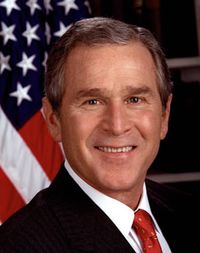

Both Vietnam and Iraq were based on a faulty premise. The Cold War and the War on Terror were both seen as military struggles. They were not.
Ronald Reagan, who validated the Nixon Thesis of Conflict, Nixon’s politics, used his alliance with the Saudis to drive down the price of oil, drive down the price of gold, and destroy the Soviet Union economically. When their exports could no longer sustain their military machine, their system collapsed and the war ended. Yes, he set in motion the present conflict, but one global war at a time, OK?
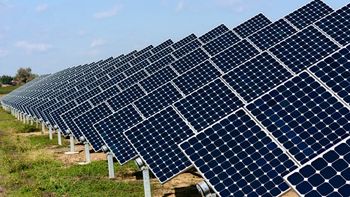
We think that this year’s violence means we are at the beginning of a long struggle, but we don’t have to be. We can be very, very close to that struggle’s end. If, like Reagan, we use technology. If, like Reagan, we think economically. If, like Reagan, we take away the economic fuel that gives our enemies their strength.
In just the last five years, solar and wind energy have gone from being expensive toys, vanity projects in places like California, to cost-competitive with fossil fuel grid energy in many states, and (with existing subsidies) in most states.
So the way to fight this war to a successful conclusion is simple. Extend the subsidies. Tax all forms of energy if you like, but tax fossil fuels first, and remove all its subsidies. Do everything we can to increase efficiency (by making it valuable), do everything we can to increase supplies of solar and wind power, do all we can to grow storage and make deliveries of renewable power reliable, with a new intelligent micro-grid that lets energy be consumed closer to where it’s produced.
Call it a National Security bill. Call it the “Destroy ISIS Now” bill. Call it what you want. Call it a Declaration of War against Oil. But pass it. Let’s make the global economy independent of oil, because Je Suis Paris.
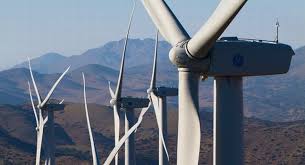
We can do this. We can win the War on Terror by 2020, by winning the War against Oil, taking away the markets that ISIS and the other combatants depend upon to buy weapons. It’s our weapons they’re buying. We’re the world’s arms merchant. That is why I expect pushback. Existing arms merchants, and existing oil merchants, are going to fight this like it’s a life-and-death struggle. It is.
So let’s then make this the defining issue of the 2016 election. How can we best win the war? With guns or technology? With our military or with our economic power, our capitalist system of incentives and our ability to adapt?


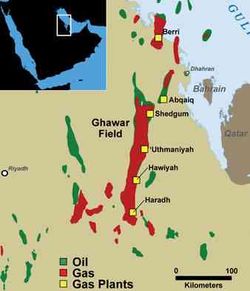
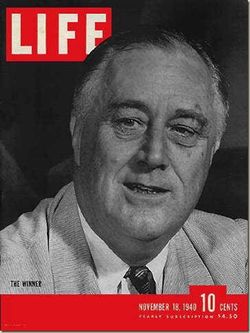








nice
also the saudi’s have been supporting fundamentalist islamic groups for awhile.
nice
also the saudi’s have been supporting fundamentalist islamic groups for awhile.